Part of My Shakespeare Project
Intro
Arguably the most striking feature of The Two Gentleman of Verona is that it’s so accomplished even though it was one of Shakespeare’s earliest plays – perhaps the first – and despite the fact that it’s regarded as one of his weakest and rarely performed. William certainly hit the ground running, faster than everyone else; and in fact he was just getting into his stride …
I have laid out a summary of the plot below, followed by my assessment/appreciation.
Plot summary
The two gentlemen friends, Valentine and Proteus, begin the play with very different attitudes to life. Valentine is the more adventurous of the two and is sent by his father to Milan to see something of the world, a prospect which he relishes. He tries to convince Proteus to accompany him, but recognises that it is pointless, as Proteus is in love with Julia and, furthermore, seems in love with love itself.

On his arrival at the court of the Duke of Milan, Valentine instantly falls in love with Silvia, the Duke’s daughter. Proteus, meanwhile, has been abruptly ordered by his own father (Antonio) to follow his friend to Milan. On leaving, he exchanges rings with Julia. Speed, Valentine’s clownish servant, informs Proteus that he has delivered his parting letter to Julia, though in fact he handed it to her waiting woman, Lucetta. Valentine is requested by Silvia to write a letter for her to someone she loves, though actually that someone is Valentine himself, a secret revealed to him by Speed. The two have fallen in love.
On arriving in Milan, Proteus is introduced to the Duke and also presented to Silvia, at Valentine’s behest. In soliloquy, Proteus soon admits that he too fell in love with her at first sight, notwithstanding his passion for Julia. Proteus’ love for Julia is mentioned to Silvia. So wildly enamoured of Silvia does Proteus become that he concocts a scheme to replace Valentine in her affections, and as events unfold we realise that he is prepared to do anything and risk everything to win her love – including his friendship with Valentine and his erstwhile love of Julia, back in Verona. Indeed, he will even ignore the fact that Silvia’s preference is his best friend, Valentine.
Proteus’ servant, Launce (aka Lance), is summoned to join his master in Milan, where he meets Speed; the two of them discuss their masters’ love affairs with amusing banter and some ribald remarks. Valentine’s plan to marry Silvia seems destined to be ruined because the Duke has promised Sir Thurio (whom in reality he likes only because of his wealth) his daughter’s hand in marriage. The Duke is highly protective of her. Valentine and Silvia, whose love is mutual, are made aware of the Duke’s intentions and decide to elope. Valentine will use a rope ladder to climb up to Silvia’s room and they will escape together. He innocently confides this scheme to Proteus, who uses his knowledge of the conspiracy to undermine Valentine’s position by – whilst feigning unwillingness to let out the secret – revealing the lovers’ intentions to the Duke. Using subterfuge, the Duke apprehends Valentine and finds the rope ladder on his person. He instantly banishes Valentine.
Meanwhile, back in Verona, Julia debates with Lucetta the true course of love. She is certain of Proteus’ undying love for her but determines to go to Milan, disguised as a page.
Proteus discusses Valentine’s situation with Launce, suggesting falsely that Silvia is terribly upset by Valentine’s actions. Banished Valentine asks Launce to instruct Speed to meet him at the north gate. In comic soliloquy, Launce reveals that he is in love with a milkmaid and lists her (utterly unimpressive) personal attributes. Launce revels in holding up Speed with small talk, before informing him that his master is waiting for him. There are a number of comic episodes involving Launce, his dog, Crab, and Speed in the play, with many humorous, and occasional ribald remarks, for instance when criticising Crab for making a smell when under the Duke’s table. Launce makes out that he is virtually the dog’s servant.

Proteus confirms to the Duke that Valentine has gone into exile. The Duke asks Proteus for advice on how they can persuade Silvia to forget Valentine and fall in love with Sir Thurio. Proteus recommends blackening Valentine’s character by implying that he engages in falsehoods, is a coward and is of poor descent. It’s agreed that Proteus should undertake this task, though he also suggests that getting her to fall in love with (the foppish) Sir Thurio may not be possible. Proteus advises Sir Thurio, who finds an appropriate sonnet, to use poetry to woo Silvia.
Having fled the city, Valentine and Speed are set upon by Outlaws. Valentine tries to mollify them by admitting that he has nothing worth stealing but intimates that he has killed a man. The outlaws include gentlemen who have themselves been unjustly banished. They are impressed by Valentine’s character and invite him to be their leader.
In soliloquy, Proteus enumerates his regrets, his personal torment and his dilemma. But he can’t resist doing anything which might help him to win Silvia. Meanwhile, Julia arrives at the court in Milan, disguised as a pageboy called Sebastian. She comes across a troupe of musicians playing music for Silvia on behalf of Sir Thurio. Then, hidden, she watches, devastated, as Proteus serenades Silvia. Silvia appears … but is scornful of his lack of loyalty to Julia, saying that she despises herself for even talking to him. Proteus tells her that Valentine is dead. At this point, though, Silvia seems to hold out some hope to Proteus, promising him a picture.
In soliloquy, Proteus comes to terms with the fact that his treachery has brought him no reward.
Silvia admits to Sir Eglamour, the embodiment of honour, whose true love has died, that she loves Valentine and hates Sir Thurio. She asks him to accompany her to Mantua and he agrees.
In Milan, Proteus meets Sebastian (ie the disguised Julia) and agrees to employ him. Launce tells him that Silvia is not interested in receiving the dog that he intended for her; but confesses that it’s not the dog that Proteus gave him. Proteus tells Sebastian that he (she) could be a better servant than Launce. He asks her to take a ring to Silvia on his behalf. Julia feels in an advantageous position in this mission. She meets Silvia with a letter from Proteus requesting the promised picture, which Silvia gives her but tells her (Sebastian) that Julia (ie she herself) would be a better partner for him than the woman portrayed in the picture. As she doesn’t trust him, Silvia declines to read his letter. Julia proffers the (ie her own) ring; but Silvia knows it is Julia’s, as Proteus has told her many times that Julia gave it to him on his departure, and she rejects it. There is touching, ironic interplay between the two as Silvia quizzes Sebastian about Julia. After Silvia leaves, and now armed with the picture, Julia muses on what she can do to displace Silvia in Proteus’ affections. She wonders why Proteus is so attracted to Silvia but decides to take the picture to Proteus (Sebastian’s master) because Silvia was so kind to her.
Sir Eglamour meets Silvia outside the Friar‘s cell. They set off for the forest and to Mantua.
Sir Thurio meets Proteus, who breaks the news that Silvia is not so attracted to him. Julia comments acerbically that Silvia thinks he talks too much. The Duke arrives and quickly deduces that Sir Eglamour has helped Silvia to flee in pursuit of Valentine. He instructs a furious Thurio and Proteus to accompany him to Mantua; Julia (Sebastian) accompanies them.
Sir Eglamour and the masked Silvia are surrounded by Valentine’s outlaws in the forest, but Eglamour escapes. The outlaws decide to take Silvia to their “captain”, Valentine, who has decided that he likes living in the woods. He hides so that he can see what his men are up to. Meanwhile, Proteus has caught up with Silvia and “rescues” her, albeit to her chagrin, as he woos her roughly, trying to force his affections on her. She resists and Proteus is suddenly confronted by Valentine, who comes to her defence.

Proteus is deeply repentant and apologises profusely. On hearing his abject apology, Valentine is so moved that he forgives him. They embrace warmly and Valentine even appears to offer Silvia to Proteus. On overhearing this, Julia swoons. Proteus and Valentine both attend to her. She comes round and (still as Sebastian) says that she was sent to deliver a ring to Silvia. Proteus wants to know how she came by the ring. Julia confesses that she brought it herself … and reveals her true identity. Proteus’ treachery is exposed. Julia castigates Proteus, before showing both rings. Proteus finally comes to his senses. Julia and Proteus are reunited in love.
The Duke and his entourage meet Valentine and his outlaws. Sir Thurio tries to claim Silvia but Valentine warns him off. Sir Thurio immediately gives in, drawing contempt from the Duke. The Duke forgives Valentine and agrees that Silvia can marry Valentine. Valentine entreats the Duke to pardon the outlaws, which he does.
The play ends happily, with both couples agreeing to have a joint wedding ceremony.
Appreciation
The play revolves around two intertwined themes: love (initially of the courtly variety, but in Proteus’ case later debased by callous scheming) and the increasing strain on the warm friendship between Proteus and Valentine, building to dramatic consequences in the climax. Proteus is at one and the same time deeply attracted to Silvia but more and more wracked with feelings of guilt and the knowledge of what he calls his “threefold perjury” – his betrayal of both Julia and Valentine and his growing acceptance that his love of Silvia is simply too intense, such that he is effectively betraying himself: ” … the remembrance of my former love is by a newer object quite forgotten”; “I love this lady too, too much”. Proteus is obsessed and utterly ruthless in his pursuit of Silvia, which nullifies the deep feelings towards Julia that he expresses at the start of the play, when he is “heart sick with thought” about her. And to this end he has no compunction about completely betraying Valentine, whose love for Silvia is deep and mutual. This obsessiveness is foreshadowed in Valentine’s comments in the first scene of the play, where he describes Proteus as “over boots in love”, suggesting an almost neurotic condition.
The other characters are not privy to each other’s innermost thoughts, of course, but in their soliloquies – particularly those of Proteus – we gain insights which heighten the drama. Such use of soliloquies (and asides) to produce dramatic irony was of course a favourite Shakespearean ploy and indeed popular in sixteenth, seventeenth and eighteenth century dramas more widely; but it’s strangely rare nowadays. It seems we need to be dissuaded from thinking that what we’re watching is “only a play”.
Scholars are agreed that this is one of Shakespeare’s earliest plays. Though the precise timing of its composition is unknown, it seems it was probably written around 1590. As is often the case, in constructing the plot and shaping the style of the play, Shakespeare borrowed from various previous works, including a 1559 Spanish romance, namely Jorge de Montemayor‘s Diana Enamorada, and John Lyly‘s Euphues: The Anatomy of Wit (1578), amongst others. I don’t think we should get too hung up about his sources and whether such borrowing detracts from his achievement. The plot is fairly flimsy, critic George Saintsbury being quite dismissive: “The central story of the Two Gentlemen is not more than enough for an ordinary nouvelle“.1 But for me the play’s the thing, not the plot. Shakespeare does mine other writers’ works but then turns his borrowings into gold; or, as Sir Jonathan Bate puts it:
“Shakespearean comedy grew from – and eventually outgrew – Lyly, just as Shakespearean tragedy and history grew from – and eventually outgrew – Marlowe.”2
The contrast between the psyches of the two main male protagonists is the most crucial structural feature, as we can only watch with increasing concern Proteus’ single-minded pursuit of Silvia and witness the angst and turmoil it creates in his mind. Valentine’s passion for Silvia is endearing; Proteus’ dark determination to win her borders on the menacing.
Shakespeare often uses classical references to embroider his prose. Thus here we find references no doubt sourced from Ovid. So, for instance, in the opening scene, lovelorn Proteus refers to “how young Leander crossed the Hellespont”, making a connection to the Greek myth about Hero, for love of whom Leander nightly swam the Hellespont, guided by a light upon her tower, which he scaled, though when it was extinguished one night he drowned in a storm, and in grief Hero threw herself into a stream. When the Duke discovers Valentine’s plan to elope with Silvia, he angrily confronts him with the words “Why, Phaeton, for thou art Merops’ son Wilt thou aspire to guide the heavenly car, And with thy daring folly burn the world?” Here we see a reference to the desire of Phaeton to prove his parentage. He begged his father, Phoebus, to allow him to drive the chariot of the Sun for a day, but, as he was unable to control the horses, they left the track and almost set the earth on fire; wheron Jove (Zeus) struck him with a thunderbolt, killing him instantly, and he fell into the Eridanus. The former tale was told by Ovid in his Heroides, the latter in his Metamorphoses. Who would speak like this, in the real world? I don’t think it matters.

On the Leander reference, Valentine describes it as “a shallow story of deeper love”, telling his friend “You are over-boots in love, And yet you never swam the Hellespont”.
Near the beginning of Act II, Speed gently teases Valentine saying that that he can’t have seen Silvia, because “Love is blind”. There’s amusing playing with alternative meanings of words, phrases and sayings, especially homonyms, such as “tied” and “tide”. But often the puns are complex. In Act 2, sc. 4, extended verbal sparring takes place between Valentine and Sir Thurio in the presence of Silvia, with Valentine jesting about Thurio’s jerkin, which Thurio insists is a doublet, Valentine retorting “Well then I’ll double your folly”. The quick-witted pair continue to compete even after Silvia compliments their “fine volley of words [ …] and quickly shot off”, with Valentine suggesting that Thurio “borrows his wit from your lady’s looks, and spends what he borrows kindly in your company”, with retaliation such as “I shall make your wit bankrupt” and “You have an exchequer of words”, until Silvia pleads “No more, gentlemen, no more”.
There’s substantial intricate punning scattered through the play, some of which (in my view) is more amenable to close reading than to appreciating from performance, and this is where the BBC DVD’s subtitles often come into their own for modern viewers. I found this especially the case in some scenes involving Speed and Launce.
I immediately spotted parallels with Twelfth Night, in, for example, Julia’s cross-dressing, as a subterfuge to be near to Proteus, which prefigures Viola, who dresses as a page to be near to Orsino. A.L.Rowse3 says that “In no play are there so many premonitions of later ones, so many devices given fuller development”. Sir Thurio’s thirst for advice on how to impress his intended is not dissimilar to that of Malvolio.
In this very early play, Shakespeare makes use of most of the devices we associate with him in his later works, including soliloquies, asides and scenes where hidden characters overhear others. In a forty-three line soliloquy in Act 2, sc. 6, Proteus confronts the “perjury” that he has committed by betraying Julia, Valentine and, he realises, himself. And yet his love for Silvia is so intense that he is prepared to take such a course. He appeals to a personified love to help him excuse his actions.:
“O sweet-suggesting love, if thou hast sinned
Teach me, thy tempted subject, to excuse it.
At first I did adore a twinkling star
But now I worship a celestial sun”.
This certainly isn’t a morality play, but as a character Proteus comes perilously close to being somewhat one-dimensional, the personification of the lovelorn obsessive. In fact it’s his angst that preserves his humanity and indeed illustrates Shakespeare’s ability to portray the kind of anguish we see in more extreme forms in the great tragedies. The contrasts between the external, prim and proper social intercourse between the titled characters at court and the emotional inner pain suffered all the while by Proteus, Silvia, Julia and Valentine gives early indication of the bard’s skill in adding numerous psychological dimensions to a plot. Indeed, this is a play of contrasts: for instance, at the start, the two characters of Proteus and Valentine, one adventurous, the other with a preference for domestic life and love; the true love of Valentine for Silvia versus what is revealed to be Proteus’ infatuation with her – and the engineered relationship between Sir Thurio and Silvia, which comes to nothing; the inconstancy of Proteus versus the loyal love of Julia; and the apparent civility of the court compared with the hidden passion and animal spirits that we know are roiling beneath the surface.
And let’s not forget the character of Valentine, who, whilst acting as a foil to the intemperate instincts of Proteus, himself exhibits distinctly dishonourable conduct in plotting to elope with Silvia, drawing fury from the Duke. Morality has many faces, Shakespeare seems to be saying, and sometimes it can be overwhelmed by love.

In Act 3, sc. 1, we find that banished Valentine is in a ferment that mirrors that of Proteus:
“And why not death, rather than living torment?
To die is to be banished from myself,
And Silvia is my self, a deadly banishment”.
Set against such self-reproach and despair on the part of the main protagonists, the light relief and comic irony supplied by the wit of Launce and Speed, predecessors of many a Fool in other Shakespearean plays, is entertaining – but also reassures us that we’re right in our suspicions or amusement or unease about what we’re witnessing. Their commentary, repartee and comic self-analysis is almost a play-with-a-play. That said, my guess is that parts of their often-rapid verbal jousting, sometimes with other characters, would have been just a little too tortuous or intellectual for some of the groundlings (and possibly even lost on quite a few up in the galleries?).
For me, there are minor weaknesses in plot structure: the suddenness and force of Proteus’ falling for Silvia; the Duke’s peremptory forgiveness of Valentine’s attempted elopement with Silvia; the abrupt forgiveness by Julia and Valentine of Proteus’ betrayals; and the immediate and unlikely acceptance, by the outlaws, of Valentine as their “captain”.
The play could have ended in tragedy, as (I understand) was the case in some of his source material. Those seeing the work for the first time were not to know where the story was going and at the happy ending would have looked back on a bittersweet tale. But my lasting impression is a sense of wonder at how such a young playwright could produce such a sophisticated work.
If it was indeed written in 1590, Shakespeare created it when he was 26. On this evidence, the number of disciplines he’d already mastered – as evidenced by his depiction of courtly life, his knowledge of the classics, his mature grasp of human nature and his mastery of the technical aspects of his craft – is truly breathtaking.
Notes
1 George Saintsbury, A Short History of English Literature, 8th edn (London: Macmillan, 1964), p. 322.
2 Jonathan Bate, The Genius of Shakespeare (London: Picador, 1998), pp. 136-137.
3 A. L. Rowse, William Shakespeare: A Biography (London: Mentor Books, 1967), p. 124.
Credit/license
“He is a stone, a very pebble stone and has no more pity in him than a dog”; artist: Walter Crane, CC BY-SA 4.0 https://creativecommons.org/licenses/by-sa/4.0, via Wikimedia Commons
Others: public domain.




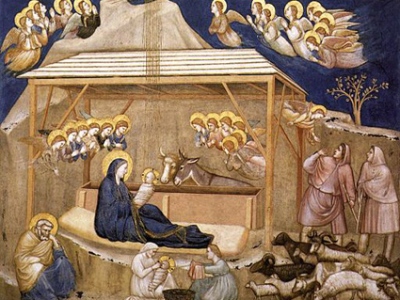








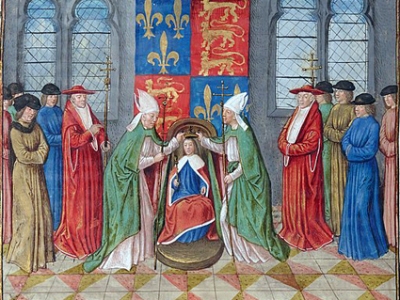


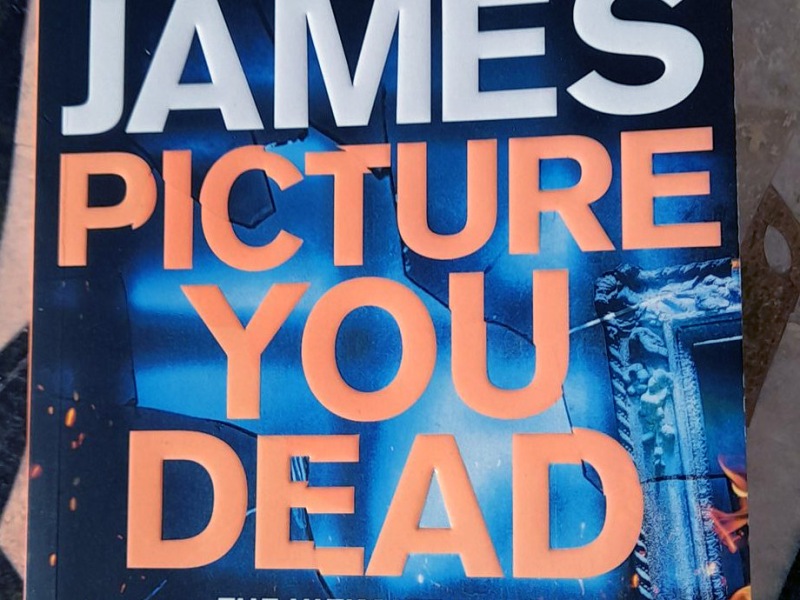














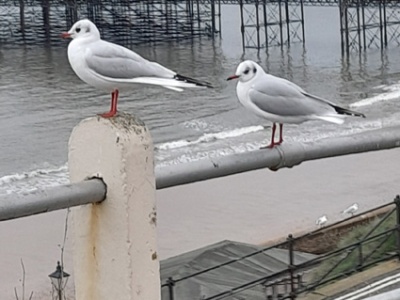



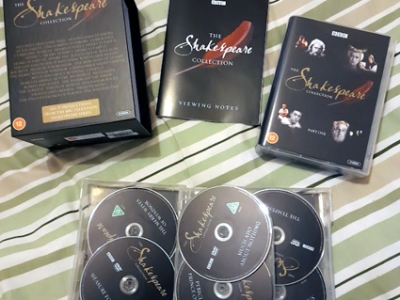

Pingback: The Taming of the Shrew … in which Kate meets her match (or does she?) | Richard Fox's blog
Pingback: My Shakespeare project | Richard Fox's blog